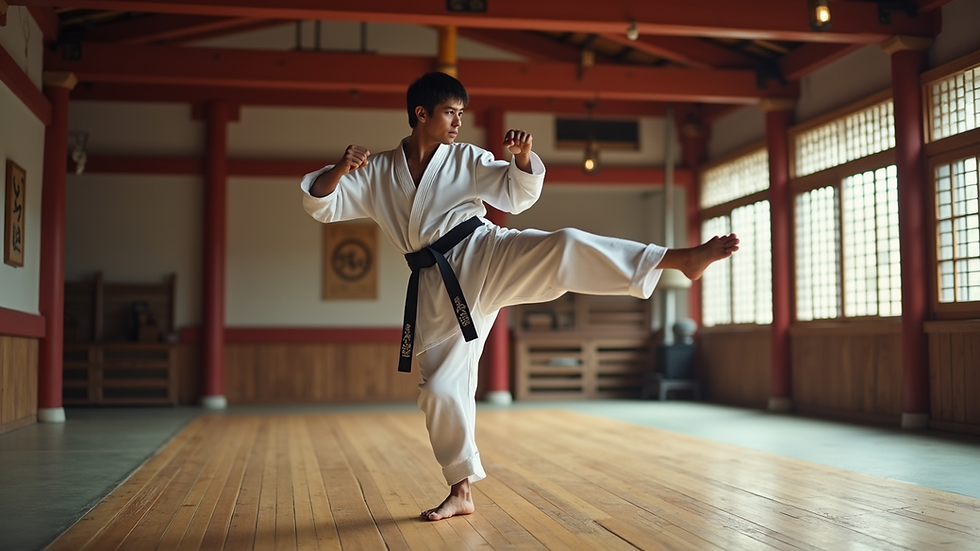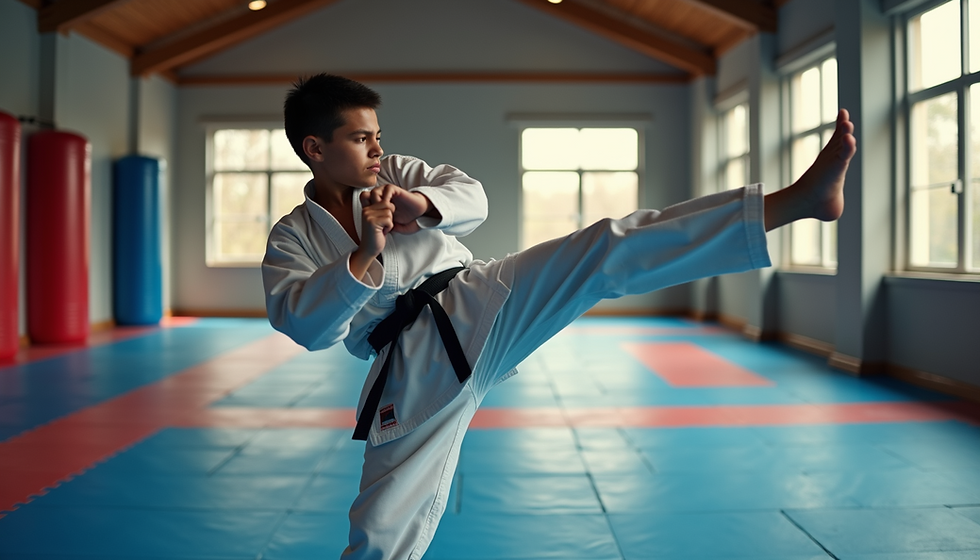The Benefits of Martial Arts Training for Children: "Building Champions in Life"
- Daniel Carey

- Aug 22, 2023
- 2 min read

Martial arts training has long been recognized as an effective means of personal development, self-defense, and physical fitness. However, its advantages extend beyond the realm of combat skills. In recent years, an increasing number of parents and experts have acknowledged the profound benefits martial arts training can offer children. In this blog post, we will explore the numerous advantages of martial arts training for children, supported by scientific research and evidence.
Improved Focus:
One of the key benefits of martial arts training for children is the development of enhanced focus and concentration skills. A study conducted by Lakes and Hoyt (2004) found that martial arts training significantly improved attention and concentration in children. The structured nature of martial arts classes, which emphasize techniques, forms, and patterns, requires children to concentrate on specific tasks and movements, ultimately enhancing their ability to focus both in training and academic settings.
Discipline and Self-Control:
Martial arts training instills discipline and self-control in children, which are invaluable life skills. A study by Wang et al. (2017) demonstrated that martial arts training positively influenced self-regulation skills in children. The adherence to rules, routines, and etiquette within martial arts classes fosters discipline, self-control, and respect for authority. Through consistent practice and guidance from instructors, children learn to manage their impulses, emotions, and behavior, leading to improved self-discipline in various aspects of life.
Confidence and Self-Esteem:
Participating in martial arts can significantly boost a child's confidence and self-esteem. Research conducted by Trulson (1986) indicated that martial arts training positively influenced self-concept and self-esteem in children. Regular training and the accomplishment of belts and ranks provide children with a sense of achievement and progress, boosting their self-confidence. Martial arts also teach children how to defend themselves, which enhances their self-assurance and promotes a positive self-image.
Physical Fitness and Coordination:

Engaging in martial arts training promotes physical fitness, strength, and coordination in children. A study by Tenenbaum and Goldring (1989) found that martial arts training improved physical fitness components such as cardiovascular endurance, flexibility, and muscular strength. The variety of movements and techniques involved in martial arts help children develop balance, coordination, and agility. Regular training not only improves overall fitness but also encourages a healthy and active lifestyle from an early age.
Social Skills and Respect:
Martial arts training provides children with opportunities to develop essential social skills and respect for others. A study by Weiss et al. (2008) revealed that martial arts training positively influenced social competence in children. Working together with peers, training partners, and instructors cultivates teamwork, cooperation, and mutual respect. Moreover, martial arts classes often emphasize the importance of respect, both for authority figures and fellow practitioners, fostering positive social interactions and empathy.
The benefits of martial arts training for children extend far beyond physical fitness and self-defense. Scientific research consistently supports the positive impact of martial arts on various aspects of a child's development. From improved focus and discipline to increased confidence and physical fitness, martial arts training empowers children both mentally and physically. By enrolling children in martial arts programs, parents can provide them with a well-rounded foundation for personal growth, self-confidence, and social skills that will benefit them throughout their lives.








Comments